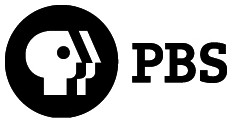
RESOURCES - Leadership Guide
Section 7 -Working Effectively with PBS Stations

Scores of PBS stations will be involved in the grassroots campaign on behalf of Remaking American Medicine, often working with QIOs and other National Partners. For those individuals who may be developing a local coalition but have little or no experience with public broadcasters, we hope the following information will be useful.
Outreach is a key component that sets public television apart from its commercial counterpart. Most notable is its ability to bring people together before, during or after a broadcast. Public broadcasting is able to provide this service because of its distinctive structure -- a national broadcast system that encourages local action. Outreach bridges the gap between community concerns and program content by providing opportunities to engage discussion, provide expert opinion, educate and inform.
Outreach Director: Most often the individual in charge of coordinating these activities within the
station is the Outreach Director. We encourage
you to contact this person as you begin your
organizational efforts.
The following are the types of outreach activities most often conducted by PBS stations in support of a national/local initiative.
Community Assessment: Stations are well versed in discerning the needs of their communities. They have long-term relationships with important stakeholders, many of whom may wish to become involved in a RAM coalition. Stations are also constantly seeking feedback from their audiences and are experienced in employing qualitative and quantitative tools.
Local Programming: If additional resources become available, stations may agree to produce local programs that would be broadcast in conjunction with the national series. These activities, which are the prerogative of the station's Programming Department, may include:
- Covering coalition/quality-related news events on the station's news programs.
- Producing 30- or 60-minute documentaries.
- Hosting a live, studio-based community forum featuring expert panelists and Champions of Change. Phone banks of station volunteers often support call-in programs.
- Producing interstitial programming. These
short, one- or two-minute pieces often air
prior to and during the national broadcast.
Interstitials may also be videostreamed on
the station's Web site.
Note: Public radio stations may be asked to produce related programming. Many are joint licensees with PBS stations.
On-Air Promotion: Stations may produce and air 30- or 60-second promos for local programming efforts.
Publicity Support: Most stations have a public information department that has considerable experience working with the local press.
Station Program Guide: Station guides are an excellent community outreach tool. Editors tend to be more receptive to a story when a station has made a commitment to a particular issue. For example, if the station is involved in a RAM coalition and is producing related programming, the editor may include a feature article and/or run a bylined piece by a campaign spokesperson.
Online Promotion: In addition to placing information on their Web sites, stations may agree to provide links to coalition partner sites, provide a moderated forum on the issue and include postings of
community-related events. If resources are
available, stations may produce a Webcast of a coalition-sponsored town hall meeting. They may also videostream programming segments on their Web site.
Community Outreach Materials: Stations are adept at incorporating materials from a variety of sources which can be used for educational guides, promotional flyers, brochures, posters, etc. Stations are also beginning to make CD-ROM versions of their outreach materials available to interested parties.
Community Events: Stations may agree to co-host town hall meetings, community screenings, panel discussions, health fairs or other public forums.
PBS Station Incentive Grants Program
The Amgen Foundation, lead sponsor for Remaking American Medicine, is underwriting a major competitive grants program designed to leverage the capabilities of the public broadcasting system. Twenty-two PBS stations have just been awarded grants to support the Remaking American Medicine campaign. These grantees will serve as catalysts for local coalition efforts and undertake a wide variety of outreach and promotional activities utilizing station staff and resources. We encourage you to work with them.
| Tip: Appendix C provides additional information about public broadcasting, a list of the PBS Station Incentive Grantees and a list of Outreach Directors in the PBS system. Details about the Station Grantees can also be found on RAMcampaign.org. |
"You cannot understand the future of public broadcasting if you do not
grasp the power of this thing called localism. The strength of public
broadcasting lies at the local level."
-- Kenneth Tomlinson, chairman
CPB Board of Directors
>> Previous: Section 6 >> Table of Contents >> Next: Section 8
